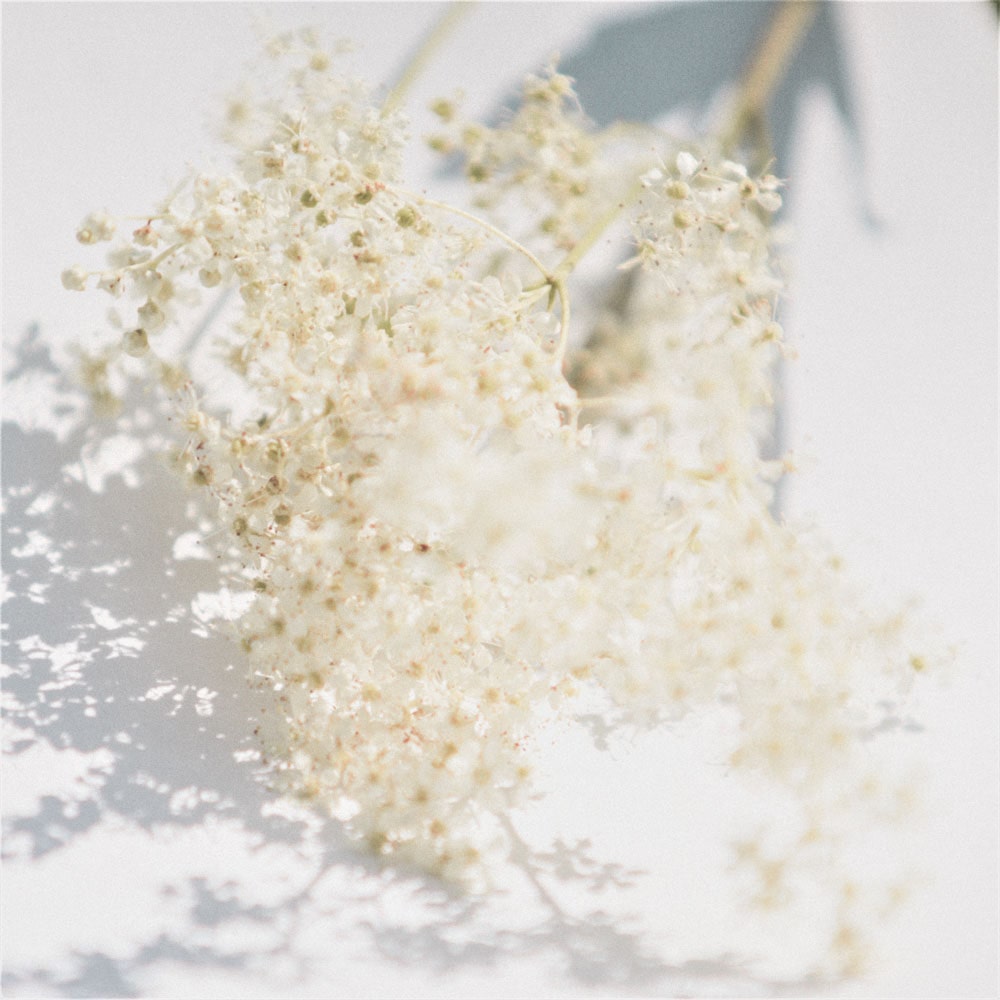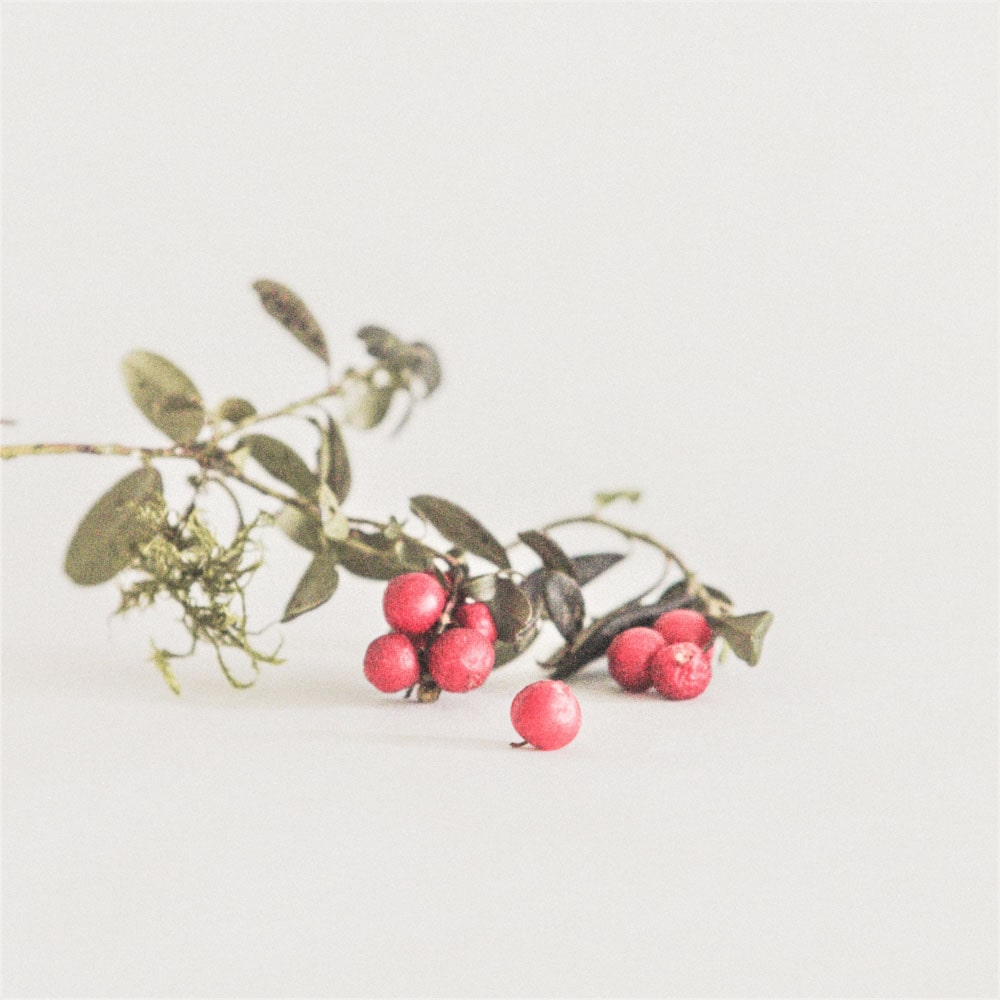Meadowsweet
INCI: Spiraea Ulmaria Flower Extract

Meadowsweet is a plant that has been used for centuries for its medicinal and cosmetic properties. In this article, we will explore what meadowsweet is, how it has been used in the past, and the benefits it can provide for your skin. We'll also cover how to use meadowsweet and its potential side effects.
Scroll down to read
What is Meadowsweet?
Meadowsweet is a herbaceous plant that is native to Europe and parts of Asia. Its scientific name is Filipendula ulmaria, but it is also commonly known as meadwort, queen-of-the-meadow, or bridewort dolloff, dropwort and mead wort. Meadowsweet has been used for centuries for its medicinal and cosmetic properties. Meadowsweet has a distinctive fragrance and its leaves and flowers contain beneficial compounds. It contains a variety of beneficial compounds and nutrients such as salicylic acid, flavonoids, mucilage, tannins, ascorbic acid (vitamin C), betulinic acid, and quercetin.
Meadowsweet has astringent, anti-inflammatory, and antioxidant properties, making it an excellent ingredient in skincare products. It is particularly useful for treating blemishes, redness, irritation, rashes, breakouts, and excess oil production. The salicylic acid found in meadowsweet acts as a natural exfoliator and anti-inflammatory, reducing redness, itchiness, and impurities. It is also a natural disinfectant that has been used to treat various skin conditions, including psoriasis, eczema, and acne.
In addition to its anti-inflammatory and disinfectant properties, meadowsweet is a natural astringent that tones and tightens the skin. It also possesses strong antioxidant properties that protect the skin from oxidative stress caused by free radicals. Meadowsweet also inhibits the activity of 5-alpha reductase, an enzyme in the skin that can trigger excess oil production, making it an ideal ingredient for those with oily skin.
Overall, meadowsweet is a versatile and effective ingredient in skincare products, and it has been used for centuries for its numerous benefits. Whether you choose to use skincare products that contain meadowsweet or make your own DIY skincare products using meadowsweet leaves or flowers, be sure to use it in moderation, especially if you have sensitive skin.
How has Meadowsweet been used in the past?
Meadowsweet has a rich history of use in folklore and traditional medicine. In Celtic times, it was considered a sacred herb and represented the Flowerbride, also known as “Blodeuwedd” – the maiden aspect of the triple goddess. It was believed to attract love, peace, and happiness and was a popular choice for love spells and potions. Adding Meadowsweet to a bridal bouquet was also thought to bring blessings and joy to the bride.
Apart from its use in love and happiness spells, Meadowsweet was also used as a strewing herb. Its astringent and flowery properties made it an excellent insect repellent and disinfectant. In the past, it was commonly used to freshen up dwellings.
In 1838, an Italian professor named Rafaele Piria extracted salicylic acid from Meadowsweet flower buds. Later, in 1897, a German drug company named Bayer synthesized salicin based on the study of Meadowsweet, which was found to be better tolerated by the stomach lining. Bayer named the new drug aspirin, derived from an old botanical name for Meadowsweet: Spiraea ulmaria. This led to the development of Non-steroidal Anti-inflammatory Drugs (NSAIDs), which are still widely used today.
Meadowsweet has also been used extensively in traditional medicine. It was one of the three sacred herbs used by Celtic druids and was historically used to flavor mead, hence its folk name “mead wort.” It has been mentioned in various herbal compendiums. It was believed that meadowsweet could be used to dry out the body, stop bleeding, vomiting, diarrhea, and excessive menstruation. Meadowsweet is also rich in salicylic acid, which is effective for pain relief and was used many centuries ago as a remedy for moderate pain, especially pain in a fixed area of the body like headaches.
Overall, Meadowsweet’s rich history of use in traditional medicine and folklore underscores its value as a skincare ingredient with a long and distinguished history of use.
Benefits of Meadowsweet in Skincare
Meadowsweet is a versatile ingredient that offers many benefits for the skin. Here are five of its most notable benefits:
1. Anti-inflammatory properties
Meadowsweet contains salicylic acid, a natural compound that has anti-inflammatory properties. This makes it an excellent ingredient for reducing redness and inflammation associated with acne, rosacea, and other skin conditions.
2. Exfoliating properties
Salicylic acid also has exfoliating properties, which can help to unclog pores and remove dead skin cells. This makes meadowsweet an effective ingredient for treating acne and promoting a more even skin tone.
3. Antioxidant properties
Meadowsweet contains flavonoids, which are powerful antioxidants that can protect the skin from free radical damage. Free radicals are unstable molecules that can damage the skin and contribute to the signs of aging.
4. Moisturizing properties
Meadowsweet contains mucilage, a natural moisturizing agent that can help to hydrate the skin and improve its texture. This makes it an ideal ingredient for those with dry or dehydrated skin.
5. Soothing properties
Meadowsweet has natural soothing properties, which can help to calm and soothe irritated or sensitive skin. This makes it an excellent ingredient for those with eczema, psoriasis, or other inflammatory skin conditions.
What nutrients does Meadowsweet contain?
Meadowsweet is a plant that contains a variety of beneficial compounds and nutrients that make it a great ingredient for skincare. Here is a closer look at some of the key nutrients found in meadowsweet:
Salicylic acid
Salicylic acid is a beta-hydroxy acid that is commonly used in skincare products to help exfoliate the skin, unclog pores, and reduce acne. It is also found naturally in meadowsweet, which makes it a great natural alternative for those who want to avoid synthetic salicylic acid.
Flavonoids
Flavonoids are a type of antioxidant that can help protect the skin from environmental stressors and free radicals. They can also help reduce inflammation and improve the overall health of the skin. Meadowsweet contains a variety of flavonoids, including rutin, quercetin, and kaempferol.
Mucilage
Mucilage is a sticky substance that is found in many plants and can help soothe and hydrate the skin. Meadowsweet contains mucilage, which makes it a great ingredient for those with dry or sensitive skin.
Tannins
Tannins are a type of polyphenol that can help reduce inflammation and tighten the skin. They can also help reduce the appearance of pores and improve the texture of the skin. Meadowsweet contains tannins, which make it a great natural astringent.
Ascorbic acid (vitamin C)
Ascorbic acid, also known as vitamin C, is a powerful antioxidant that can help protect the skin from damage caused by free radicals. It can also help improve the texture and tone of the skin, reduce the appearance of fine lines and wrinkles, and promote collagen production. Meadowsweet contains ascorbic acid, which makes it a great ingredient for anti-aging skincare products.
Betulinic acid
Betulinic acid is a triterpenoid that is found in meadowsweet and has been shown to have anti-inflammatory and anti-cancer properties. It can also help improve the texture and appearance of the skin, making it a great ingredient for skincare products.
Quercetin
Quercetin is a flavonoid that is found in meadowsweet and has been shown to have anti-inflammatory, antioxidant, and anti-cancer properties. It can help protect the skin from damage caused by free radicals and promote overall skin health.
In conclusion, meadowsweet contains a variety of beneficial compounds and nutrients that make it a great natural ingredient for skincare products. Whether you’re looking for an ingredient that can help exfoliate the skin, reduce inflammation, or improve the texture and appearance of the skin, meadowsweet has something to offer.
Example use cases of Meadowsweet in Skincare
Meadowsweet can be used in a variety of skincare products, including toners, serums, and moisturizers. Its natural anti-inflammatory and exfoliating properties make it an ideal ingredient for acne-prone skin, while its moisturizing and soothing properties make it a great choice for those with dry or sensitive skin. Here are some examples of how meadowsweet can be used in skincare:
Toner
Meadowsweet can be used in a toner to help balance the skin’s pH and reduce inflammation. To make a DIY meadowsweet toner, steep a handful of meadowsweet leaves in boiling water for 10-15 minutes, strain the mixture, and allow it to cool. Apply the toner to your face with a cotton pad after cleansing.
Acne Treatment
Meadowsweet can be used as a natural acne treatment due to its exfoliating and anti-inflammatory properties. Look for skincare products that contain meadowsweet extract or oil to help unclog pores, reduce redness and inflammation, and promote clearer skin.
Moisturizer
Meadowsweet can be added to a moisturizer to help hydrate and soothe dry or sensitive skin. Look for skincare products that contain meadowsweet extract or oil to help improve the texture and appearance of your skin.
How to Use Meadowsweet
Meadowsweet can be used in a variety of ways in skincare. Here are some examples:
Skincare products with meadowsweet extract or oil
Meadowsweet extract or oil can be found in a variety of skincare products, such as toners, serums, and moisturizers. When looking for a product with meadowsweet, it’s important to read the label to ensure that it contains a sufficient amount of the herb.
DIY skincare products
You can also make your own skincare products using meadowsweet leaves or flowers. One example is a meadowsweet-infused oil, which can be used as a facial oil or added to bath water for a relaxing soak. To make the oil, simply fill a jar with dried meadowsweet flowers and cover with a carrier oil such as jojoba or sweet almond oil. Let the mixture infuse for several weeks, shaking the jar every few days. Strain the oil and store it in a cool, dark place.
Meadowsweet tea
Meadowsweet can also be brewed into a tea and used as a skin rinse. To make the tea, steep a handful of dried meadowsweet flowers or leaves in boiling water for 10-15 minutes. Allow the tea to cool and strain out the flowers or leaves. Use the tea as a final rinse after cleansing your skin to help soothe and tone.
It’s important to note that meadowsweet should be used in moderation, as it can be irritating to some people, especially those with sensitive skin. Always do a patch test before using any new skincare product, and discontinue use if you experience any irritation or discomfort.
Meadowsweet Side Effects
Meadowsweet is generally safe for most people to use in skincare. However, it’s important to note that meadowsweet contains salicylates, which can be irritating to some people, especially those with sensitive skin or aspirin allergies. If you experience any redness, itching, or irritation after using meadowsweet in skincare, discontinue use and consult a healthcare professional.
Frequently Asked Questions
Is Meadowsweet Safe for Sensitive Skin?
Meadowsweet can be irritating to some people, especially those with sensitive skin. It’s important to patch test any new skincare product that contains meadowsweet to ensure that it doesn’t cause any adverse reactions.
Can Meadowsweet Be Used During Pregnancy?
Meadowsweet is not recommended for use during pregnancy, as it contains salicylates, which can be harmful to the developing fetus.
Where Can I Find Meadowsweet Skincare Products?
Meadowsweet skincare products can be found at natural health stores, online retailers, and some drugstores. Look for products that contain meadowsweet extract or oil.
Recap
In summary, meadowsweet is a natural ingredient that offers many benefits for the skin, including anti-inflammatory, exfoliating, antioxidant, moisturizing, and soothing properties. It contains a variety of beneficial compounds and nutrients, including salicylic acid, flavonoids, and mucilage. Meadowsweet can be used in a variety of skincare products, including toners, acne treatments, and moisturizers. However, it should be used in moderation, as it can be irritating to some people. If you’re looking for a natural ingredient that can improve the texture and appearance of your skin, consider adding meadowsweet to your skincare routine.
Further reading

Arctic Lingonberry Seed Oil
If you haven't heard of arctic lingonberry seed oil yet, you're in for a treat. This superfruit, produced by low, evergreen shrubs throughout Scandinavia's forests, has been used for centuries for its health-promoting properties and is now gaining popularity in the beauty industry. But did you know that it also has incredible benefits for your skin? In this guide, we will dive into the benefits and uses of Arctic Lingonberry Seed Oil in skincare.
Continue reading
Calendula
In this article, I will explain what Calendula is, its historical uses, the benefits of using Calendula in skincare, the nutrients it contains, and example use cases. By the end of this article, you will have a better understanding of how Calendula can benefit your skin and why it is an ingredient worth incorporating into your skincare routine.
Continue reading
Cornflower
I'm excited to share with you this comprehensive guide on cornflower in skincare. In this article, we'll explore the benefits of cornflower in skincare, its nutrients and compounds, and some example use cases. So, let's dive right in!
Continue reading